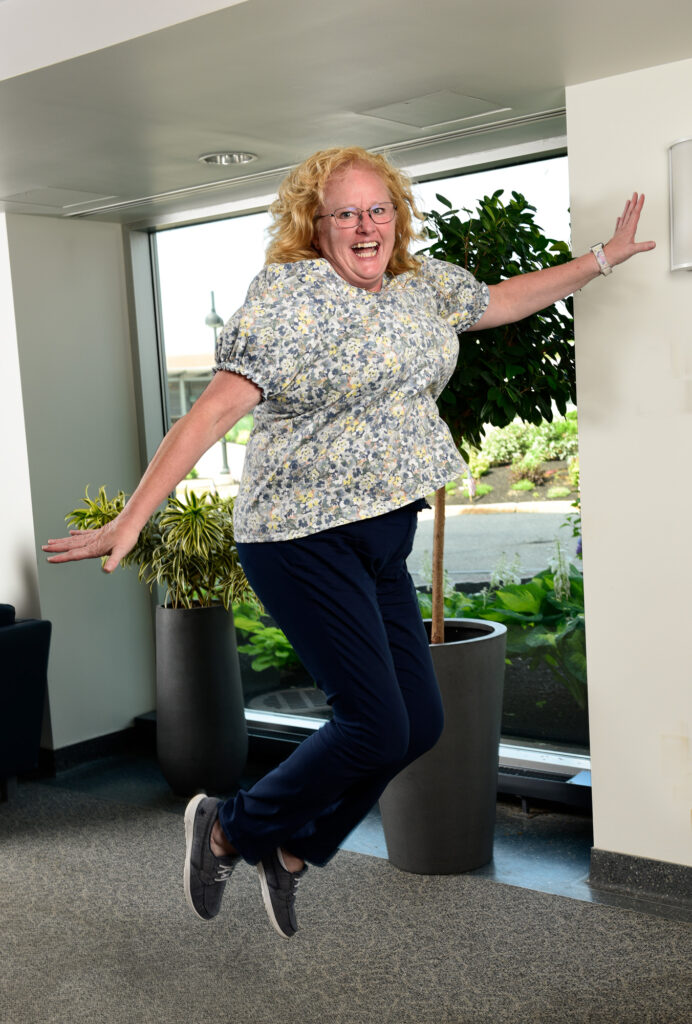“If it weren’t for Dr. DeFrance and his team, I wouldn’t be where I am today. It was clear that they heard me and understood the challenges I was facing. I have a new outlook on life!”
A dedicated athlete when she was younger, Lisa had 14 surgeries on her knees, which left her with a very poor quality of life. She was determined to find someone who would listen to her and acknowledge her suffering.
“I couldn’t ride a bike with my kids,” says Lisa. “I couldn’t mow the lawn or rake leaves. I’d seen several doctors, and it was frustrating. They all told me I’m too young for a knee replacement and cortisone shots stopped working. The pain was excruciating.”
Then Lisa met Michael DeFrance, DO, at Central Maine Healthcare Orthopedics.
“Dr. DeFrance really listened to me. I told him about all of the previous surgeries and the pain. He suggested a double knee replacement, and I trusted him completely to make things better for my mobility and, truthfully, my life.”
After successful surgery, Lisa continued to make progress. She worked with Len Farinas, a physical therapist at Central Maine Therapy Services, conveniently located next door to Central Maine Healthcare Orthopedics.
“Lisa will tell you how often she celebrates the gains she’s making during physical therapy,” Len says. “She’s exuberant, and it’s contagious joy. She lets everyone in the gym know how excited she is.”
With a new bounce in her step, Lisa is back to being the active person she once was, with absolutely no restrictions on her activity.
“I now play with my grandkids,” says Lisa. “I go out and walk all the time. At work, people walk fast to catch up to me.”



